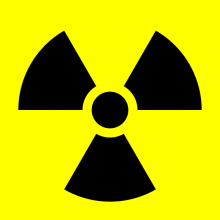No and no. And maybe. Those were the signals coming from Iran regarding their nuclear program ahead of Tuesday’s return to negotiations with the major world powers. The so-called P5+1—the US, UK, France, Russia, China and Germany—are all set to resume talks with Iran, and Iran is already settling on what they are willing to compromise. And what they’re not. Turns out their ‘No’ items are pretty important. And that’s bad for you.
A key demand by the West that Iran is already refusing is that Iran ship out of the country its higher-level nuclear fuel. Iran enriched the uranium to 20 percent, claiming it is for medical research. However, the UK and others have highlighted that Iran has far more of it than would be necessary for that civilian purpose. While not yet military-grade, the research-level gets Iran closer to the nuclear fuel needed for weapons.
But on Sunday, the Fars News Agency reported that a member of Iran’s negotiating team told state-run TV that they would not ship the nuclear fuel out of the country. “We, of course, will negotiate on the different forms, amounts and levels of enrichment, but sending the (nuclear) materials out of the country is our redline,” Seyed Abbas Araqchi was quoted as saying.
Yet another area of contention is the actual enriching of nuclear fuel on Iranian soil. Israel has argued that Iran—which is under serious suspicion of working towards nuclear weapons—should not be allowed to even develop the fuel at home, lest they divert it to a weapons program.
As proof that a civilian program doesn’t need local enrichment to work just fine, Israeli Prime Minister Benjamin Netanyahu highlighted recently that the Czech Republic works under that model. Iran said, “No,” to that, too.
“We will not retreat even an iota from whatever the Iranian nation is entitled to have based on the international treaties,” said Araqchi.
A major sponsor of global terrorism and the brutal Syrian dictatorship in its civil war, Iran has long sought nuclear weapons capability. That would be a serious threat to you and your country, as well as to the stability of the Middle East. In other words, oil prices could be very volatile and rise if Iran ever got nuclear weapons. That puts your wallet and your safety at risk.
The West has imposed crippling sanctions on Iran over the nuclear program, and now Iran wants to at least appear ready to talk. However, Israel has been warning not to automatically trust the now-smiling Iranians, pointing out that actions speak louder than words.
So far, the words—No, No and Maybe—aren’t so good either.
(By Joshua Spurlock, www.themideastupdate.com, October 13, 2013)

